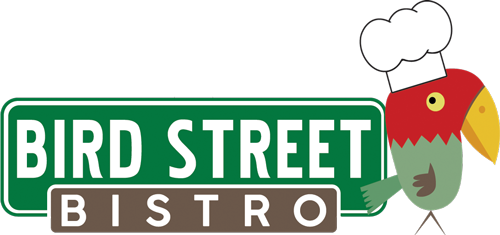10 Essential Rules in Parrot Care and What Foods Parrots Must Avoid
Are you a new bird parent? Perhaps you’re taking care of a loved one’s fid (feathered + kids for those of you who are new to the community). Here are the top 10 essential rules in parrot care and foods to avoid to keep your bird healthy and happy.
10 Essential Rules in Parrot Care
- Provide good ventilation
- Give your bird fresh food every day
- Remove fresh produce within four hours
- Nesting materials should be clean and dry
- Wash and disinfect cages, toys perches weekly
- Provide clean bowls that are preferably stainless steel
- Make sure your bird is only drinking the purest water available
- Change water 2 times per day, or when your bird bathes in it or contaminates it
- Avoid dusty conditions, poor ventilation or sanitation, and closed confined areas
- Do not use any Teflon (PTFE) products such as non-stick pans. (This also includes your oven's self-cleaning mode, as most ovens are given a coat of PTFE non-stick)
Foods your Parrot must avoid
- Chocolate - Although delicious, Chocolate contains a substance called theobromine which is toxic to almost all animals, birds included
- Avocado - This includes guacamole, which contains persin, a toxic and lethal chemical to birds
- Caffeine - contains a substance called toxic theobromine
- Mushrooms - Mushrooms are a type of fungus, and some species are toxic
- Tomato leaves - Be careful with the plants and the leaves of tomatoes as these can be toxic
- Salt & Fats - No Bueno.
- Apple seeds - Contain cyanhydric acid (cyanide), which no one should eat
- Fruit Pits - Contain cyanhydric acid (cyanide), which no one should eat
- Onion - Too many onions can cause digestive discomfort and anemia
- Garlic - Even though garlic has multiple health benefits, much like the onion, it's reported to cause anemia. It's better to be safe than sorry with this one
- Uncooked beans - Only cooked beans are useable. Cooked beans provide a healthy and nutrient-rich food option. Just make sure they are cook
- Lactose - Parrots are not capable of digesting dairy products containing lactose. Unlike mammals, parrots are not fed lactose rich milk as babies, instead, parrots feed their young by regurgitating food to them.
- Alcohol - Why would anyone do this? No.
- Raw meat & Poultry - If not cared for appropriately, raw meat and poultry can carry salmonella and other bacteria
- Processed Foods - Stop to think about how this can have too many additives and preservatives like sulfites, sulfates, nitrites, nitrates, etc.
- Eggs - Cases have been documented of arterial plague which may have been caused due to cooked egg consumption.
What to feed my Parrot?
Now you know more about parrot care. Now, knowing what to feed your parrot can be a bit daunting. As we covered in "The Great Debate: What to feed my Bird", creating a healthy cooked meal for your fid every day or having fresh food as an addition to a pellet diet is something that various loving parrot parents do. Where or how to start can be difficult. What to cook and how to create a balanced blend that’s optimal for your bird’s health can be a challenge. Here at Bird Street Bistro, we are here to help with our all-natural blends. If you have any questions or need help or recommendation please reach out to us at customer.service@birdstreetbistro.com. We would love to hear from you, are there any other essential parrot care best practices you want to share? Let us know and comment below!
10 essential rules in parrot care,
parrot care,
parrot care list,
parrot food,
parrot food to avoid
- Choosing a selection results in a full page refresh.
- Press the space key then arrow keys to make a selection.


